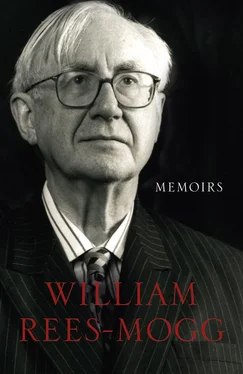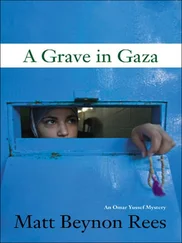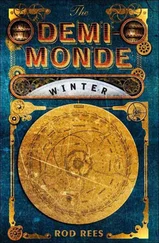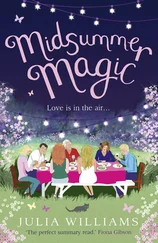1 ...6 7 8 10 11 12 ...18 I was particularly close to my mother because when the slump came, in 1930, my parents decided that they couldn’t afford a nanny, so my mother completely took over looking after me. I was two. I spent a great deal of time with her, the two of us mostly just conversing with each other. It fell to my sisters – Elizabeth was seven years older than me and Anne six years older – to get me up and dress me which was a chore they got very bored with. I had one lovely month when my American granny, Granny Warren, came over and stayed. She was in fact dying of cancer – although she kept her illness from us all. She took over the job of dressing me in the morning and I would rush along to her bedroom and she would talk to me about her childhood in the America of the 1860s.
My mother was a hugely entertaining person to be with. She had a perfect voice, a sense of timing and a sense of occasion. She had the temperament of a star, but not of a star who made excessive claims for herself. She had wit and intelligence and energy and I remember her saying she couldn’t understand people being bored because she’d never been bored in her life.
As an actress my mother had considerable dress sense and awareness. She dressed in the smart, understated American style of the 1930s which was made fashionable in Britain by Mrs Simpson. She didn’t spend a great deal of money on her clothes. When she got married she’d been given an allowance for her clothes, by her father, in American Trading Company preference shares. But, about a year later, the American Trading Company – under a callow new proprietor – lost most of its money and stopped paying even preference dividends. My mother felt that she had had money to buy clothes in the past but that she didn’t any more. She was well dressed but thrifty.
My mother still went out on the English countryside routine of ‘making calls’. The rules still really came from the carriage days: you knew the people living in the big house of their village within a seven-mile radius and you called on them – you called on houses rather than people. Therefore you had a secondary acquaintance with people who weren’t in a seven-mile radius of your house but were in a seven-mile radius of a house on which you called. The calls were made in the afternoon and occasionally I was taken as a child with my mother to call. My mother had been fascinated by and had mastered the whole etiquette of calls and how Somerset ladies spoke to each other. She observed, as an actress, how old Lady Waldegrave used to talk. If you were visiting Lady Waldegrave, she would say, as the hostess, ‘How kind of you to come.’ And you would reply, ‘How kind of you to ask me.’ Beatrice discovered that she could play the Somerset ladies role better than the Somerset ladies themselves.
We were to read Shakespeare again as a family during the war. I remember that we read the English history plays, which seemed to have most to say about the dire circumstances of 1940 and 1941. Shakespeare always teaches the Churchillian doctrine: ‘In victory magnanimity, in defeat, defiance’. We read Richard II , which contains the great patriotic speech ‘This Sceptered Isle’ of old John of Gaunt, ‘time honoured Lancaster’. We also read King John , a much underrated play. I read the part of the Bastard, which also has a great patriotic speech, well suited to the worst days of the Second World War:
This England never did, nor never shall
Lie at the proud foot of a conqueror,
But when it first did help to wound itself.
Now these her princes are come home again,
Come the three corners of the world in arms,
And we shall shock them: Nought shall make us rue,
If England to itself do rest but true.
In 1943 and 1944, my mother took me to see John Gielgud, first in Macbeth and then in Hamlet . London was covered by the blackout, and the plays started early, so that the audiences could get home in safety. Gielgud was not, by his own high standards, a particularly memorable Macbeth; he lacked the physical characteristics for the part.
Gielgud’s Hamlet was another matter. No single actor can capture all the aspects of Hamlet’s personality. No doubt Gielgud overemphasized the intellectual and sensitive Hamlet, at the expense of the active young Prince, but his was the most moving Hamlet I have seen.
It was Shakespeare who framed my mind, in terms of my vision of the world, before my experience of adult life had set in. He gave me a sense of the drama of life, and its poetry; he gave me a sense of the variety of personality and of the range from good to evil. I was fond of the wise old men, of Cardinal Wolsey, of Polonius. Indeed, my critics might think that I have made a living out of playing Polonius on the public stage; I am particularly aware of his inability to see what a comic character he was making of himself.
I did not see Hamlet as a role model, or Julius Caesar, or any of the English kings. I knew already that I was not destined to play Romeo. It was, rather, the great speeches which gave me my picture of the world. The ancient Greeks were brought up in the same way on Homer. I do not suppose many of them thought they would grow up to be a second Achilles; it was the total effect of the poetry that gave them access to a Homeric consciousness.
In wartime, one needs to turn to great literature. Shakespeare gave that, and he also gave expression to a patriotism which makes other patriotic verse sound like a penny whistle. In peacetime, one needs to understand the world as Shakespeare sees it with affection but without illusion, with caution but without timidity, with realism as well as idealism, with humility as well as ambition, with a certain melancholy. I certainly took my politics from Shakespeare. I have never doubted that he was the leading genius of the English nation. He taught me to think, to feel, to understand and to place myself as appropriately as I might in the drama of life. Like him my politics have been rooted in the human need for order and harmony. Like him I hope for the best but fear the worst. Like him I have a Catholic nostalgia for a lost past: ‘Bare ruin’d choirs where once the sweet birds sang’.
It was in the first winter of the war, in January 1939, that I came across the next book which changed my life. I had caught a bad dose of influenza. The local doctor prescribed the new sulfa drug, M & B 693, which was later to be replaced by penicillin. I had to stay in my bedroom for two or three weeks. We still had a young housemaid, though she soon vanished, and I remember her coming in early in the morning to lay and light the bedroom fire, a luxury which lasted in English country houses down to – but seldom beyond – the outbreak of the Second World War.
As I was recovering, I wanted to find a book to read, so I went down to the Cholwell library. There I found a set of James Boswell’s Life of Johnson , which had been published by the Oxford University Press in the 1820s. I could only find the first three out of the four volumes.
I lay in bed for the next ten days, entranced and delighted by Boswell. Here the romantic lines of Keats really come close to it; Boswell’s Life of Johnson had on me the effect that Chapman’s Homer had on him:
Then felt I like some watcher of the skies
When a new planet swims into his ken;
Or like stout Cortez when with eagle eyes
He star’d at the Pacific – and all his men
Look’d at each other with a wild surmise –
Silent, upon a peak in Darien.
There were many things I found attractive about Boswell’s Life . I immediately came to share his hero-worship of Samuel Johnson:
To write the life of him who excelled all mankind in writing the lives of others, and who, whether we consider his extraordinary endorsements, or his various works, has been equalled by few in any age, is an arduous, and may be reckoned in me a presumptuous task.
Читать дальше












